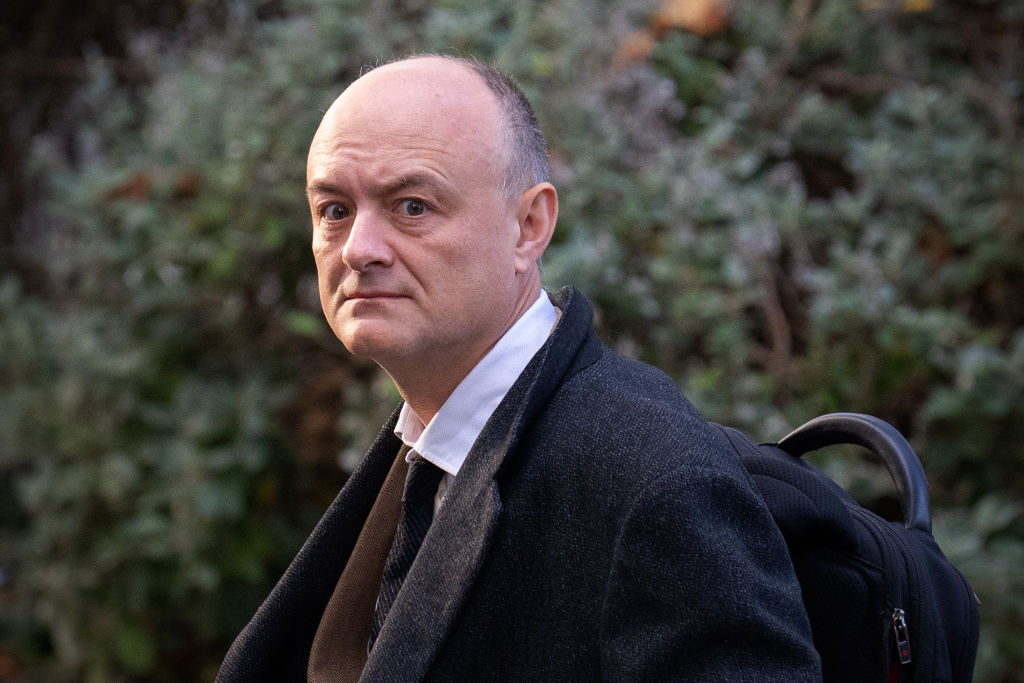Copyright newstatesman

For all its downsides, Britain’s current political and economic malaise presents opportunities for a reporter to get out and see unknown parts of his country. On Thursday night, I found myself at Indigo, a side theatre of the O2 Arena that usually hosts cage fights and tribute acts to dead musicians, to witness a rally by Looking For Growth, a new political movement which believes it can “push Britain out of decline”. I stood at the foot of the stage, about eye-level with the brown plastic trainers and beige chinos of LFG founder Lawrence Newport, as he paced from left to right and back. Newport’s voice, slightly querulous, oscillated between that of the strident preacher (he spoke of LFG “chapters” across the country) and of a kid telling a bully that he just won’t take it anymore. “This is an astounding country which birthed the Industrial Revolution,” he said. “This is the country that started industrial energy – now we have the highest industrial energy prices in the world!” Boooo, went the crowd. Newport talked about how fly tipping might as well be legal, how crimes go unreported because there is so little faith that the police will act (he is now building a crime database of his own). He’s sick of more tax and spend while everything seems to be getting worse. The guy next to me was in a navy suit with a gilet underneath. His hair was slicked back. He told me he worked in finance. The guy in front of me was bopping frenetically up and down. The back of his T-shirt said he was “At Risk of Being Cancelled for Whistleblowing on the Energy Sector and Universities”. The two guys behind me were involved with the Anglofuturism podcast, on which the hosts and their guests discuss the decline of British manufacturing, infrastructure, architecture and much else. They wore branded blue polo shirts advertising the pod. On the back of one were the words “Industrialise Antarctica”, on the other, “Raise Dogger Bank”, a reference to the massive sandbank in the North Sea. They think building on it could be the key to the territorial proliferation of the British Isles. We were all holding flimsy plastic cups filled with export-strength European lager (£8.20 a pint) and I couldn’t see many women. (The apparent male-dominance of LFG has led some more vicious observers to dub it “looking for girlfriend”.) Newport asked for a show of hands – “who here has had their mobile phone stolen?” I put up mine. Finance guy nodded and sidled up to me. We had spoken before about my being an impartial journalistic observer, but now I had become involved. He asked what happened. Oh, I’ve had mine nicked twice, I said (I’m careless). “Twice!” he yelped. I admitted that on the first occasion it was such a shitty Android model that the thief-on-bicycle stopped, looked at the handset twice then threw it to the pavement and rode off. Forty per cent of the phone thefts in Europe happen in London, Newport told us. Booooo. The expensive lager was having its effect. Finance guy told me how terrible it is. I realised that, for this crowd, the experience of having a phone stolen held greater meaning than it did for me. For them, it is an offence against a bourgeois idyll. Just like the Lurpak in plastic cages and the broad daylight bike thefts. They were angry that people-like-that keep getting one over on people-like-them. One of the other speakers at the event owns a furniture shop near Stoke-on-Trent. He said urban decay and crime in his local area brought him into LFG’s orbit because he worries about his children’s future. Sluggish and poorly funded police forces salt the wound. These young men at the O2 abide by the law and do the right thing and pay their taxes. So why is no-one helping? Newport and the other speakers urged them to “just do stuff”, like big litter picking events and mass-graffiti scrubbing on the London Underground. (There is a hard limit. The LFG boys are unlikely to go up against organised crime and armed thieves.) “So what can we do?” Newport asked. An Irish voice came from the back: “Run for mayor!” I looked back and saw it was Sam Bowman, the libertarian Substacker who has been sloshing around London think-tank world for years. Many of the faces in this room were recognisable posters. “I follow you on Twitter” was a common greeting. And then the most talented poster of all took the stage: former chief of staff to Boris Johnson, mastermind of the Vote Leave campaign and Westminster’s most interesting blogger, Dominic Cummings. Cummings – dressed casually in polo shirt, cargo pants and a cap – insouciantly bulldozed through the names of various top flight-politicians of all parties while twirling a red pen with his left hand. He described the event as a “white pill” for him because it showed intelligent people are interested in radical political change. The difficulty with writing about these events, and Cummings in particular, is that one feels compelled to unpack the shorthand terminology. The “white pill” derives from the Matrix films and the thought of the radical right-wing blogger Curtis Yarvin – it broadly means something that when taken sparks optimism, as opposed to taking the “black pill” which sparks pessimism. In a recent interview with Cummings, the Times had to explain to its readers what an NPC is – “non playable character”, a video-game term which Cummings uses to describe people he holds in contempt. He did not mention Boris Johnson’s name throughout his appearance at LFG, instead referring to him as “the Trolley”. His interlocutor, the pollster Scarlett Maguire of Merlin Strategy, was trying to understand his thinking. Could any politician satisfy him? He spoke with some optimism of Nigel Farage, despite previously clashing with him during the EU referendum and describing his campaigning outfit as “useless”. Though he has often been at the centre of political chaos – including the defenestration of Johnson – Cummings still claims not to enjoy it. Maguire asked him about last week’s New Statesman cover story by Andrew Marr, on the “doom loop” of British politics. “Something has gone drastically wrong with where elite talent finds itself in this country,” he said, arguing that Britain had people of ability like Pitt and Churchill when it faced Napoleon and Hitler, whereas now it has Matt Hancock (ha). His earnest wish is for an effective right-wing leader who is good at “political warfare”. “At risk of being cancelled” man walked to the front and, standing at the foot of the stage, kept throwing his thumbs up to Cummings and nodding at everything he said and laughing wildly at every joke he made, e.g. comparing the heads of the BBC and NBC to Joseph Stalin. He was a Dom superfan. Cummings mixed barbs about “trans activists and commies” with quotes from Trotsky and Gramsci. But, despite their support from the Yimby Labour MP Chris Curtis, he seemed to understand that LFG is an explicitly right-wing project. Cummings was followed on stage by Curtis, who extolled the virtues of the post-1945 socialist renewal of Britain, and then by the Tory “rising star” Katie Lam, who spoke of unburdening the stock market and the brilliance of Victorian innovation. Both cast the contemporary “growth agenda” in the favoured historical eras of their parties. LFG identifies a fairly narrow political consensus in the two main parties as a cause of the present crisis. But they seem to want to create a countervailing consensus to escape it, with a Curtis-style Labour party and a Lam-style Tory party – they might argue at the margins but agree on some fundamentals: fewer bat tunnels, more houses, cheaper energy prices. It’s not extremism. It’s a cross-party expression of Middle England class politics, for people who want to buy a house and have nice things. Finance guy probably likes the sound of Lam’s pland for no more DEI in Ftse 100 companies. For the Anglofuturism guys there’s the pull of Curtis’s sprawling new towns. As for “At Risk of Being Cancelled” man, he just seemed happy to be among friends. They’re all sick of having their phones nicked. Despite the general aesthetic association with the technological fraternity of Silicon Valley, Looking For Growth fans are not conventional libertarians. Instead what Newport and his followers really want is a powerful state that will look after them. They are sensitive young men who have paid their taxes, and so the state should protect them (for some, but not all, there is a resentment of the money that is spent on the so-called “non-productive” parts of society). But they also want a state that lets them alone when it comes to regulation and taxes. It’s a syncretic mix which has had success before in Britain. We called it Thatcherism, a combination of authoritarianism in policing and libertarianism in economics. Opinion remains justifiably divided on whether that admixture really did create a thriving, peaceful land that was destroyed by malign reformers like Tony Blair and Gordon Brown – or instead just midwifed the present situation of a fraying social fabric and a soggy-bottomed, unproductive economy, helped along by placid, consensus-obsessed New Labour politicians. For the VIPs there was a post-talk drinks event upstairs. Cummings had fled early, but Curtis and Lam both held separate courts. We had to pay for our drinks. Like every good bourgeois, the bar manager was looking for growth too. [Further reading: Anglofuturism won’t save Britain]



